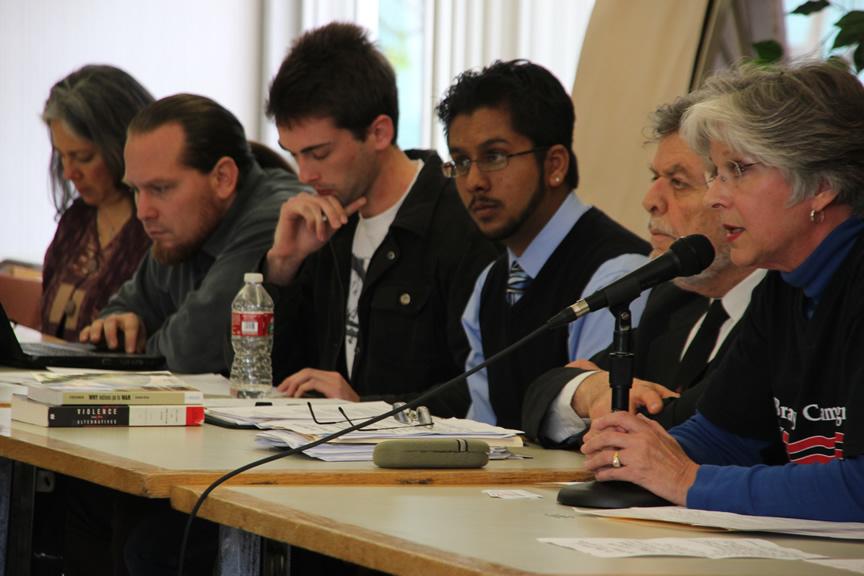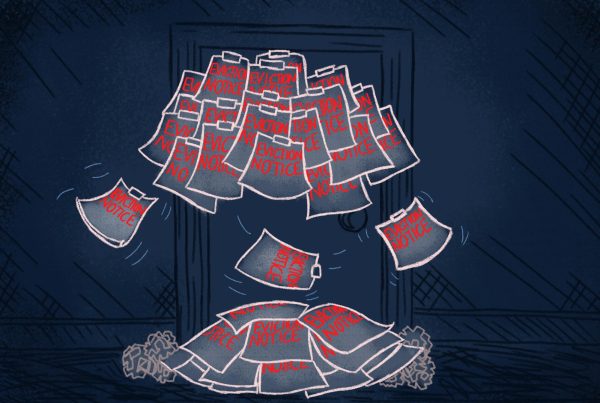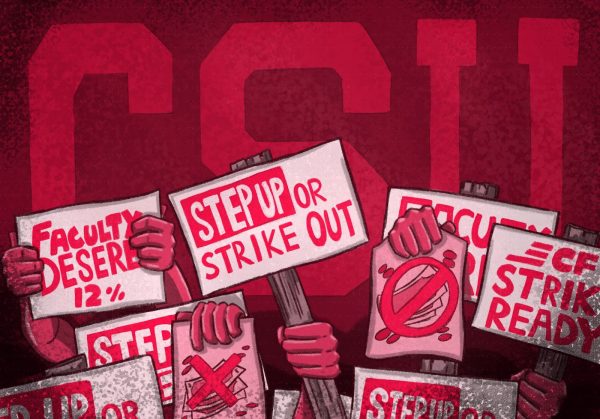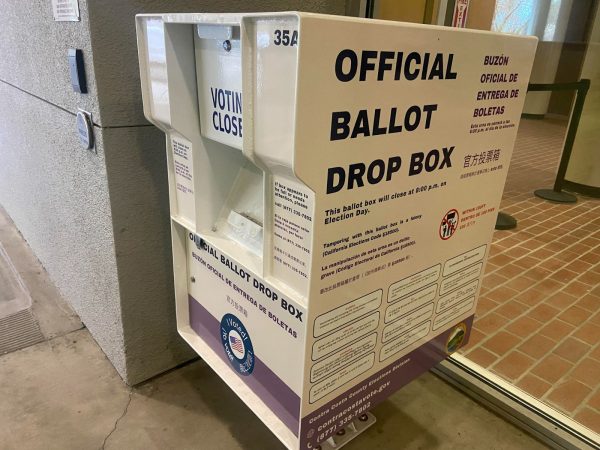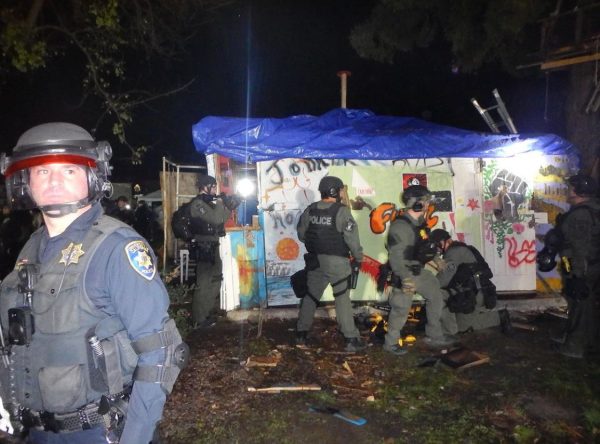Attacking gun violence from a multidimensional approach
March 13, 2013
On Thursday, March 7, a wide array of gun control advocates compiled a panel of eight members in DVC’s “Action Against Gun Violence” meeting. The meeting coincided with the ongoing nation-wide campaign against gun violence, as well as the national week of observation of against gun violence.
Leading the presenting panel was DVC’s very own Social and Political Science instructor, Dr. Amer Ariam. His fascination with the story of Colin Goddard, a Virginia Tech alumni and most notably a survivor of the tragic mass shooting on the Virginia Tech campus, inspired him to pursue logical and effective solutions to end gun violence. Following the Connecticut shooting at Sandy Hook Elementary, it was clear to him that the issue demanded discussion, awareness, and action amongst the DVC community.
“We must look at the issue of gun violence as a multidimensional approach,” said Dr. Ariam.
There are many aspects surrounding the complex issue, including but not limited to: current gun legislation, the availability and acquisition of guns, and the psychological aspect of mental health which causes humans to commit such violent crimes.
There is not one simple solution to stopping the worldwide epidemic that is gun violence, but there is a common consensus amongst both the local community and national society that some form of action must be taken.
“Imagine your family receiving a phone call when it is discovered that your child, brother, sister, or grandchild has been killed. The grief that a community goes through, it tears a community and society apart,” said Karen Arntzen, representing the California Chapter of the Brady Campaign.
The Brady Campaign is a nation-wide campaign composed of victims of gun violence who intend to take their pain and grief and turn it into action. They believe that through the reformation of gun legislation and enforcement of laws that the problem will not be completely erased, but will decrease dramatically.
“California has the strictest gun laws in the country,” said Arntzen. “Our gun deaths in the state are well below the national average.”
Arntzen believes that enforcing laws similar to the laws of California will greatly reduce the number of national deaths caused by guns. David Robinson, representing the Model United Nations Club, held a similar outlook and pointed to legislation as a good place to start in reducing the number of deaths.
Robinson gave a thorough explanation of the current legislation that has just been passed by President Barack Obama. He focused on the importance of comprehensive background checks, in which doctors could play a part in identifying mental health disorders and report them to the proper authorities so that these individuals do not receive guns. However he realizes that there is no assurance that this will fully prevent someone with mental health problems from attaining guns.
“If someone is intent on retrieving a firearm, whether legal or illegal, that person will find their weapon,” said Robinson.
Dr. Ariam and Abdulhakeem Montes, former Editor-in-Chief of the DVC Inquirer and current representative of the Muslim Student Association, both attributed mental health issues as one of the most serious aspects of gun violence.
“Some people will isolate themselves from society, and will take out their frustrations on other people,” said Ariam.
These people are often ones who carry a mental disorder or are psychologically challenged and unwilling to ask for professional help.
“Eight of the nine killers in the mass shootings last year had a mental illness. It is important to look at cross-cultural studies,” said Montes. “There is much benefit in talking about what causes human beings to do such things.”
The meeting concluded with students and members of the audience asking the panel questions or sharing their own opinions or experiences with the issue. Hearing from the students and various members of the board offered perspective to the audience.
Moving forward, citizens can play their part in reducing gun violence by continually raising awareness and offering solutions to Congress. It is certain that this issue will not disappear from our communities until action is taken.





































































